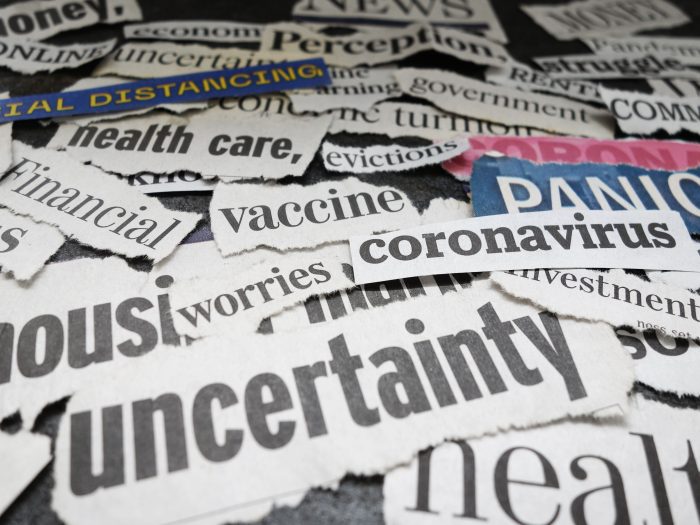Sponsored: EK Health Services
Understanding Becomes Healing: A Deep Dive Into the Growing Impact Mental Health Has on Workers’ Comp Claims

It’s 2022 and the hits just keep on coming.
The workers’ compensation industry is feeling the catastrophic impact of the lingering pandemic in countless ways. In order to get a better grasp on what that looks like for injured workers, EK Health surveyed its nurse case managers on several issues.
The company asked what topped the nurses’ list of contributors to claim escalations and costs. Mental health was the clear leader.
“Unrecognized and untreated mental illnesses drive up workers’ compensation claim costs and disability,” said Douglas Benner, MD, MS, FACOEM | Chief Medical Officer for EK Health Services, Inc.
Here is a deeper look at how mental health is impacting workers’ comp claims.

Douglas Benner, MD, MS, FACOEM, Chief Medical Officer for EK Health Services, Inc.
The Link Between Mental and Physical Health
Benner said mental and physical health contribute equally to an injured worker’s overall health.
“That is why we place such a high priority on patient advocacy and establishing a positive relationship between the injured worker and his or her employer,” he said. “It is why our nurse case managers communicate so frequently and thoroughly on all aspects of each claim.”
According to the Centers for Disease Control (CDC), depression increases the risk for many types of physical health problems, particularly long-lasting conditions like diabetes, heart disease and stroke. Similarly, the presence of chronic conditions can increase the risk for mental illness.
Mental illness can have a natural concurrence with workers’ compensation claims, given the frequency of factors that can contribute to risk for mental illness, including:
- Adverse life experiences, such as childhood trauma, or a history of physical or emotional abuse
- Chronic medical conditions, such as cancer, heart disease or diabetes
- Biological factors or chemical imbalances in the brain
- Abuse of alcohol or drugs
- Loneliness or isolation
“Since many of those dynamics are common to work-related injuries and exacerbated by the fear and isolation related to the ongoing pandemic, we are seeing the rise in mental illnesses impacting claims,” Benner said.
Prevalence of Mental Health Concerns
As noted by the CDC, mental illnesses are among the most common health conditions in the United States, citing the following statistics:
- More than 50% will be diagnosed with a mental illness or disorder at some point in their lifetime.
- 1 in 5 Americans will experience a mental illness in a given year.
- 1 in 5 children, either currently or at some point during their life, have had a seriously debilitating mental illness.
- 1 in 25 Americans lives with a serious mental illness, such as schizophrenia, bipolar disorder, or major depression.
COVID-19 Impact on Mental Health
The National Institute of Mental Health (NIMH) — the lead federal agency for research on mental disorders — has closely tracked the impact COVID-19 has had on mental health trends.
In his April 2021 article titled One Year In: Covid-19 and Mental Health, NIMH’s director stated, “Several surveys, including those collected by the Centers for Disease Control (CDC), have shown substantial increases in self-reported behavioral health symptoms.”
“According to one CDC report, which surveyed adults across the U.S. in late June of 2020, 31% of respondents reported symptoms of anxiety or depression, 13% reported having started or increased substance use, 26% reported stress-related symptoms, and 11% reported having serious thoughts of suicide in the past 30 days. These numbers are nearly double the rates we would have expected before the pandemic.”
“As in prior studies, this survey showed that risk factors for reporting anxiety symptoms or suicidal ideation included food insufficiency, financial concerns, and loneliness.”
How Employers Can Help
“Many of our employer clients have asked what more they can do to provide additional mental health support — not only for their injured workers but also for their entire employee population,” Benner said.
“We are constantly collaborating with our expert clinicians and subject matter experts to do just that. And the results are promising.”
By serving as patient advocates and establishing a positive and supportive rapport, the nurse case manager is often the first to become aware of mental health needs and act appropriately to provide the necessary support.
EK Health’s nurse case managers have been able to fine-tune their interactions with injured workers to proactively address mental health concerns as they surface and to direct as needed to appropriate resources.
“Employers have also stepped up to provide more robust employee assistance programs (EAPs), which include pandemic-friendly options like telemedicine,” Benner added.
Technology to the Rescue
Far beyond the growing reliance on telemedicine, technology is emerging as a promising tool for supporting those with mental health concerns.
Today’s mental health apps perform a variety of functions, including:
- Managing medications
- Teaching coping skills, such as meditation and relaxation
- Predicting when someone may need more emotional help
- Help users manage symptoms
- Help users overcome anxiety, depression, post-traumatic stress disorder (PTSD), or insomnia
Because interventions are most effective when people like them enough to use them, developers of behavioral health apps are enlisting the help of software engineers to make mental health apps easy and engaging.
According to NIMH, while the apps are becoming more appealing and user-friendly, there still isn’t a lot of information on their effectiveness. NIMH and forward-thinking health care agents are closely watching the following trends in apps being developed to improve mental health.
A wide variety of mental health apps are emerging, including:
- Self-Management Apps
- Apps for Improving Thinking Skills
- Skill-Training Apps
- Illness Management and Supported Care
- Passive Symptom Tracking
- Data Collection
How Can You Help?
Are you ready to take mental health support to the next level for the injured workers in your world? We can help you take the first step. In our experience, a little compassion goes a long way. That is why we have built mental health awareness into our case management solutions as a standard best practice. Our nurse case managers are trained to listen for red flags and proactively provide targeted resources as mental health concerns emerge.
To learn more, start a conversation with us today. In the meantime, explore the resources available online at CDC, NIMH, and maybe even the app store on your mobile device. And stay tuned to see what’s next as we chart these troubled times.
About EK Health Services, Inc.
As a leading national managed care company specializing in workers’ compensation, EK Health Services, Inc. sets the gold standard for medical case management, utilization review, medical bill review, network management, and Medicare Set-Asides. We provide the best people, processes, and technology to facilitate expedient, quality and cost-efficient medical treatment for workers’ compensation claims. Learn more about EK Health’s solutions at www.ekhealth.com.
This article was produced by the R&I Brand Studio, a unit of the advertising department of Risk & Insurance, in collaboration with EK Health Services, Inc. The editorial staff of Risk & Insurance had no role in its preparation.










